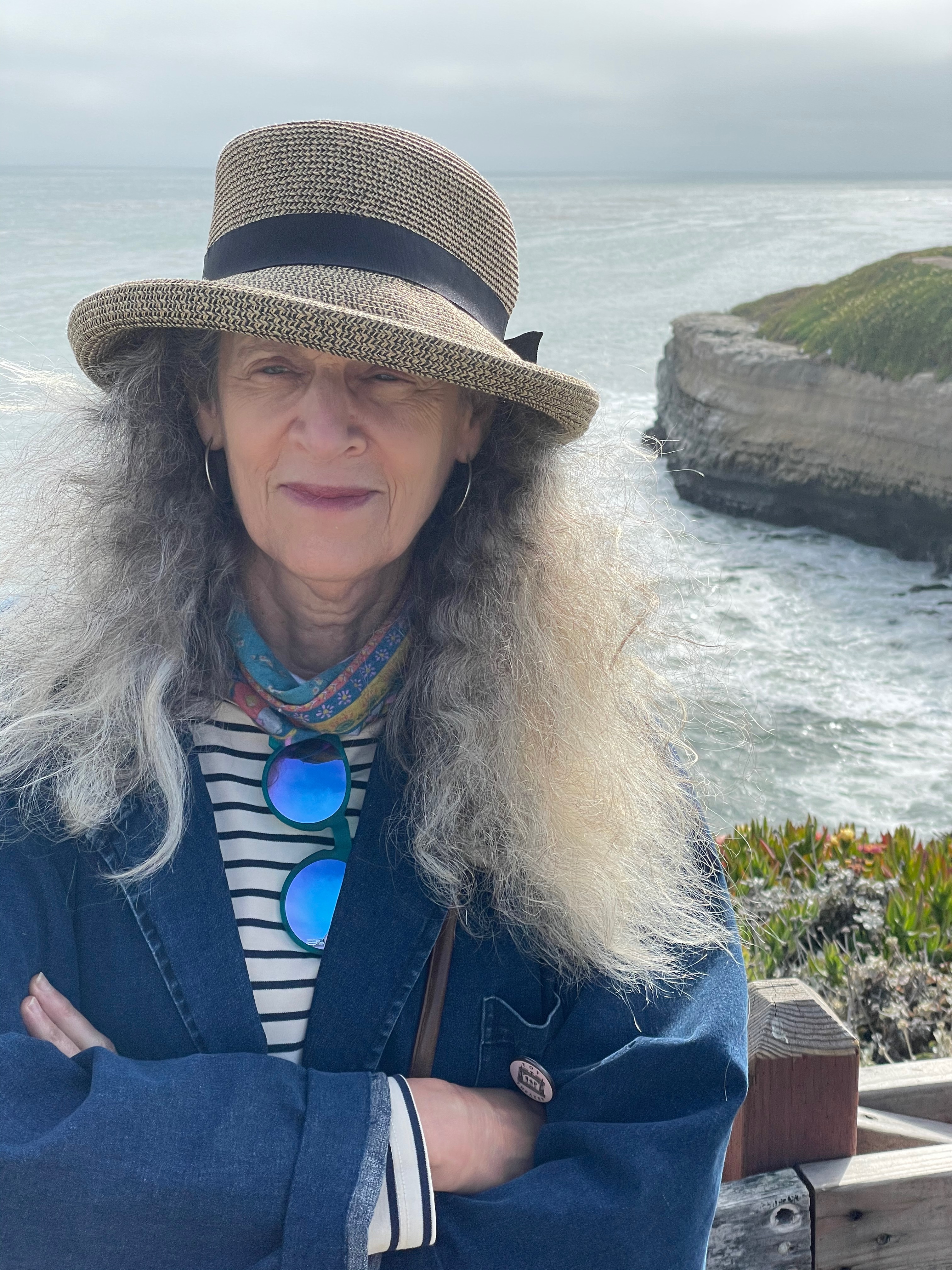Days of the Dead
“Life in Newark was sweet until the riots.”
To visit the dead safely
in Newark during the high
holidays the city advises Jews
to come on a day the police
choose, when they will
guard those wanting to pay
their respects. Fast by
the parkway, viewed from
the car, the cemeteries, long
in disuse, appear unkempt,
congested with gravestones,
like the hurly burly traffic
beside them, some fallen,
others cracked, stripped
of their bronze plaques
sold for scrap, or defaced
by hot pink spray paint. A writer
described, among many details,
a torn-up portrait medallion,
bereft of everything recognizable,
except for the man’s torso in suit and tie.
Grounds littered underfoot,
with cigarette butts, fast food,
gum wrappers, condoms,
discarded needles, dog shit. No
swastikas yet, but just wait. From
nearby, in the suburban hills, promised
land for the exodus after the riots
in ‘67, or afar in Westchester or Boca,
families of the deceased do little more
than lament the neglect. I’m one
of them. Never been there, I search
Find-A-Grave on the internet to locate
my grandparents and when I do,
their stones pictured in color,
somewhere there on the jumbled
premises, look okay to me.
I cannot believe any of these dead
rest in peace, not for our lack
of respect, custodial care,
or these unfortunate call-them
desecrations. These dead are
too good for that. I look at it
differently. With no lives to lose,
buried under for so long, by now
they’ve learned about death
in this place. Their monuments
wreak their own havoc, wilding,
as beasts of rock whose hooves
pull out of the resistant ground,
stampede crookedly, stand in
solidarity with their neighbors
who live on the same blocks,
outside the wrought gates,
and who yet again must take
to the streets, living what it
means to be left behind.
Dressing Torah
Torah's look harks back
to the blue woolen tunic,
to the considerable bling of filigreed
breast plate, silver finials, and crown,
the annunciatory bells that high priests of yore
wore at the altar. So tell me,
how the Torah is not an idol or a fetish,
a juggernaut disguised as a book.
Flayed hide scraped clean,
stretched taut, then soaked in lime,
tweezed of every hair, the parchment
once belonged to a real kid, a calf, inked on
no less! Grubby fingers banned, pointers to keep
our place. Koshered, we've come too far. I want
the ancient sacrifices back, nothing cloven, of course.
But undo the sash, slit open the bellied book
that we can touch like our ancient ancestors,
whose blood-tipped fingers
knew their way around the organic animal,
its meat like these scrolled pages, tissues packed
thick with intricate mysterious codes;
and who can recall earlier its eyes
widened like their own, fearful, trembling
with life unaccountably given, then sacrificed.
With the red coals of their breath, voices rise as one,
devotion like smoke, waft the words heavenward, a divine aroma
pleasing to God's nostrils, to their own ravenous hungers.
Deborah Gorlin
Deborah Gorlin is the author of two books of poems, Bodily Course, winner of the White Pine Poetry Press Prize and Life of the Garment (Bauhan Publishing), winner of the 2014 May Sarton New Hampshire Poetry Prize. Her forthcoming book of poems, Open Fire, will be published in the spring of 2023. Her work has been published in a wide range of journals including Poetry, American Poetry Review, Bomb, New England Review, and Best Spiritual Writing 2000. Recent poems appear in Plume, On the Seawall, Chicago Quarterly, Trampoline, The Ekphrastic Review, Mass Poetry, The Hard Work of Hope, and are forthcoming in SWWIM and Canary. Emeritus co-director of the Writing Program at Hampshire College, she served for many years as a poetry editor at The Massachusetts Review.

